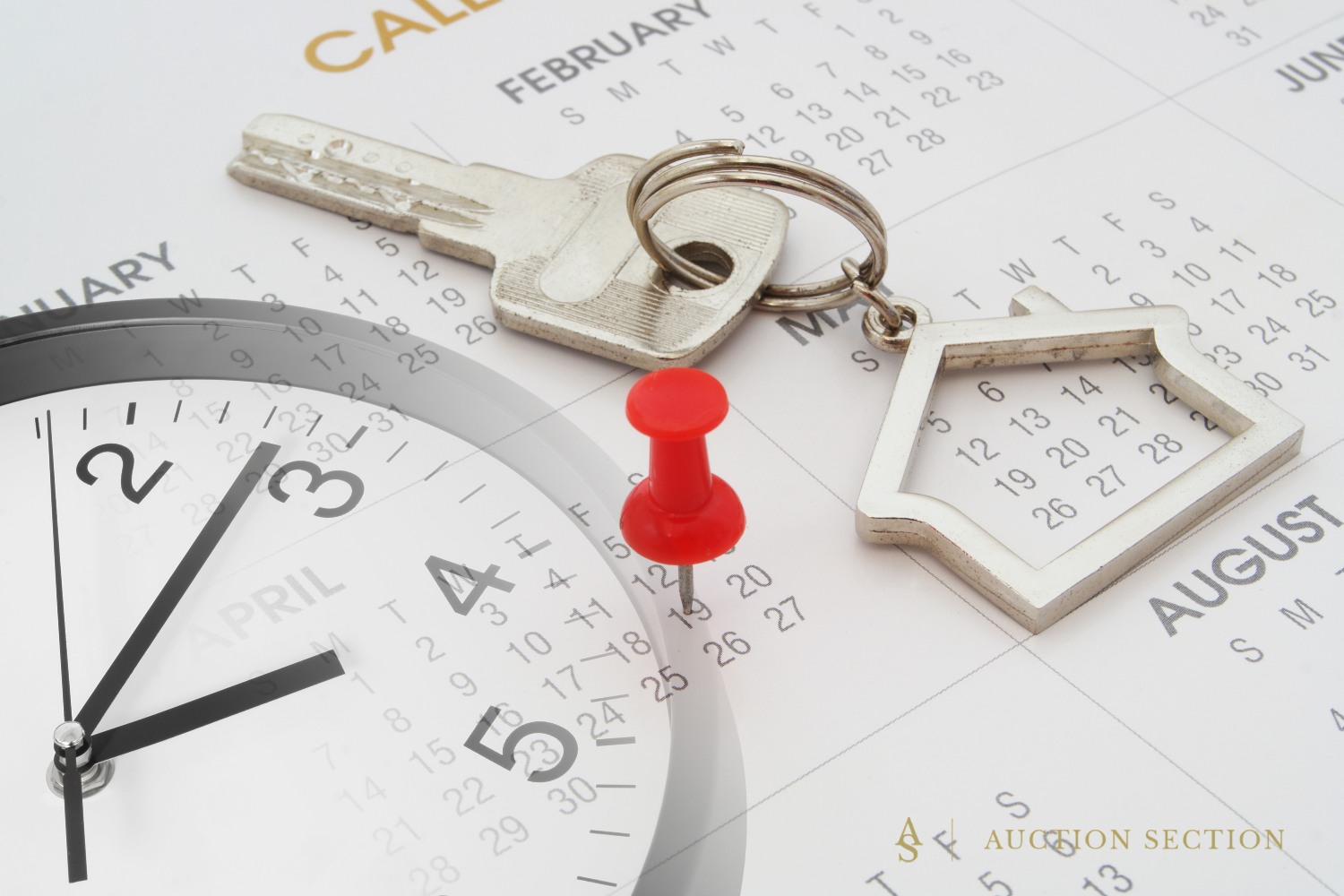
Buying a home is one of the most significant life decisions, especially if you’re diving into it for the first time. Traditional home buying can be overwhelming, involving brokers, inspections, counteroffers, and paperwork. But there’s another opportunity you might not have considered: real estate auctions, like the ones managed by the Auction Section in Texas.
Auctions aren’t just for seasoned investors; they can be an exciting, transparent, and efficient path for first-time buyers. This guide breaks down what you need to know, step by step, in simple terms. By the end, you’ll better understand how auctions work, what sets Auction Section apart, and how to approach your first property bid with confidence.
What Is a Real Estate Auction?
A real estate auction is a public sale in which properties are sold to the highest bidder within a specified time frame. Instead of submitting offers privately, buyers compete live (or online), and the top bid wins, assuming it meets any minimum or reserve price.
Why auctions matter:
- Speed: Sellers appreciate how quickly auctions conclude, often within weeks, rather than months.
- Transparency: Bidding is open and visible, so you always know where you stand.
- Opportunity: Buyers can score deals on homes, land, commercial buildings, even luxury properties, that might not be available elsewhere.
Why Are Some Homes Sold at Auction?
There are several reasons why a property might end up at auction, and it’s not always because something has gone wrong.
Sometimes, homes are auctioned because the owner couldn’t keep up with mortgage payments. When that happens, the bank or lender takes back the property and sells it quickly through an auction to recover their money. The same thing can happen if someone doesn’t pay their property taxes; local authorities can step in, take over the home, and auction it off to cover the debt.
But auctions aren’t just for foreclosures or tax problems. Many property owners choose to sell their homes this way. Why? Auctions are often quicker and more efficient than listing a house for sale. There’s no drawn-out process with showings, price haggling, or waiting around for a buyer to get financing. Sellers like the speed and simplicity of auctions; they set the terms, pick the date, and let serious buyers compete.
For both sellers and buyers, auctions can be a win-win: fast, fair, and focused.
Types of Real Estate Auctions
If you’re new to auctions, it’s helpful to understand that not all real estate auctions operate in the same manner. There are several different types, and understanding the differences can help you select the right one for your goals and budget.
1. Absolute Auction
In an absolute auction, the property will be sold to the highest bidder, regardless of the final price. There’s no minimum that the seller is trying to meet. These auctions usually attract a lot of interest because buyers know the home must sell. It’s a great option if you’re ready to act quickly and want a fair shot without worrying about reserve prices.
2. Reserve Auction
In this format, the seller sets a minimum price, known as the “reserve.” If bidding doesn’t reach that number, the seller isn’t required to sell the property. This gives the seller more control but still allows buyers to compete openly. Many of the auctions on platforms like Auction Section follow this model, helping ensure both sides get a fair deal.
3. Minimum Bid Auction
This is like a hybrid between absolute and reserve auctions. The seller publicly announces a starting bid, and the auction only begins from that number. If no one meets the minimum, the property won’t sell. This format provides buyers with a clear understanding of what is expected, while still allowing room for competition.
Each auction type has its pros and cons, so it’s essential to read the listing details carefully. When working with the Auction Section, our team is available to guide you through the format and help you understand what to expect before placing your first bid.
Step-by-Step Guide for First-Time Buyer Auction Success
If you’ve never purchased a home through an auction before, don’t worry – you’re not alone. The process differs from traditional buying, but with proper preparation, it can be smooth and rewarding. Below is a simple, step-by-step guide to help you transition from a curious buyer to a confident auction winner.
1. Explore Auction Listings
Begin by browsing available properties on reputable auction websites or through local real estate auctioneers. You’ll find a wide range of options, from starter homes and fixer-uppers to land, condos, and commercial properties. Use filters like location, property type, and starting bid to focus on listings that match your needs and budget.
2. Research Thoroughly
Before placing any bids, take time to understand the property you’re interested in. Good research helps avoid surprises later.
- Visit the property in person, or review photos and videos.
- Review the documents provided by the seller, including the title report, property disclosures, and inspection results (if available).
- Look into zoning laws, taxes, neighborhood trends, and any other local factors that might affect the property’s value.
3. Understand the Terms
Every auction has its own set of rules and conditions. Read them carefully before registering or placing a bid.
- Reserve price: The minimum price the seller is willing to accept. If bidding doesn’t reach this amount, the property may not be sold.
- Earnest money: A deposit (usually 1–5% of the winning bid) paid by the buyer to show they’re serious.
- Closing timeline: Most auctions require you to complete the purchase within 30 to 45 days after the auction ends. Delays could lead to losing your deposit.
Ask questions ahead of time and ensure you fully understand the auction’s terms before participating.
4. Get Pre-Approved
Since auctions often don’t allow for traditional financing contingencies, it’s essential to get pre-approved for a loan or have proof of funds before the auction begins. This demonstrates that you’re prepared to close quickly and avoid delays that could disqualify your winning bid.
5. Set Your Auction Budget
Going into an auction without a set budget is risky. Bidding can get competitive, and it’s easy to get carried away.
- Add up all potential costs, including the bid amount, closing fees, repairs, taxes, and your earnest money.
- Determine your maximum bid, the absolute limit you’re willing to spend, and stick to it during the auction, regardless of how intense the bidding becomes.
6. Participate in the Auction
Most auctions today are held online, though some still happen in person. Either way, the process is usually straightforward:
- Register for the auction and submit any required documentation or deposits.
- Log in or attend at the scheduled time and follow the bidding process.
- Bid confidently, but never exceed the limit you set earlier.
- If you’re the highest bidder and meet the seller’s requirements, you win the property.
7. Win & Close
Winning an auction is exciting, but things move quickly after that.
- Pay your earnest deposit promptly.
- Begin the closing process immediately, including signing paperwork and transferring funds.
- Complete the sale within the required closing window, usually within 30 to 45 days.
- Once the deal is finalized, the property is yours. You can move in, rent it out, renovate, or sell it based on your goals.
How to Evaluate Properties as a First-Time Buyer
Here’s what to look at when browsing auctions:
1. Location & Neighborhood
Is it close to schools, work, or amenities? Research crime rates and future development plans.
2. Property Condition
Auctions may list inspection reports or disclaimers. Assess how much repair will cost, and plan a buffer in your budget.
3. Market Comparisons
Check recent sales of similar homes in the area (comps). This helps determine whether the opening bid in the auction is a reasonable one.
4. Recoverable Equity
Do the numbers work? Subtract repair costs, closing costs, and your cushion from the projected selling or living value.
5. Auction Terms
Review reserve price, earnest deposit levels, closing deadlines, and accepted financing types.
Benefits for First-Time Buyers
Buying your first property at auction might seem like a bold move, but it comes with several unique advantages. For many first-time buyers, auctions offer a faster, more straightforward, and often more transparent alternative to traditional home buying.
1. Stronger Buying Position
In an auction, there’s no drawn-out negotiation process. You’re not stuck waiting on counteroffers or wondering if your bid will be accepted. Everyone competes openly, and the highest bid wins. That creates a level playing field and gives serious buyers a real advantage.
2. Faster Results
Tired of waiting weeks or even months for a seller to make a decision? Auctions move fast. Once the bidding ends and a winner is declared, the closing process typically happens within 30 to 45 days. It’s a straightforward, no-nonsense timeline that first-time buyers often appreciate.
3. Access to Unique Properties
Auctions often include properties that aren’t available through traditional real estate listings. This could be anything from foreclosures and bank-owned homes to undeveloped land and hidden gems in growing neighborhoods. It’s a great way to find opportunities you might otherwise miss.
4. Transparent Process
One of the biggest perks of auctions is the transparency of everything. The bidding is public, the rules are clear, and all timelines are set in advance. There are no secret negotiations or confusing backroom deals – just a fair and straightforward buying experience.
Challenges & How to Overcome Them
While real estate auctions offer numerous benefits, they also present unique challenges, particularly for first-time buyers. However, the good news is that with proper preparation, most of these obstacles can be managed or even avoided. Here’s what to look out for and how to handle it:
1. Limited or No Property Inspections
In many auctions, you may not receive a comprehensive home inspection, unlike in a traditional sale. Sometimes, only basic information is provided, or the property is sold “as-is.”
How to handle it:
Do your research. Drive by the property if possible, speak with nearby homeowners, and carefully review any available disclosures, photos, or reports. If permitted, consider hiring a contractor or inspector for a brief visual assessment.
2. No Financing Contingency
Most auctions don’t allow time for you to secure a loan after winning. If you can’t close on time, you risk losing your deposit.
How to handle it:
Get pre-approved by a lender before the auction starts. Select someone who understands auction timelines and can move efficiently. Make sure your finances are in order and you’re fully prepared to close without delay.
3. Competitive Bidding Pressure
Bidding against others can be intense, especially if multiple people are interested in the same property. It’s easy to get caught up in the moment and overpay.
How to handle it:
Set a firm maximum bid before the auction begins, and stick to it. Stay focused on the numbers, not the emotion. Remind yourself that walking away is better than overextending your budget.
4. Tight Closing Deadlines
Auction purchases often come with a strict closing timeline, usually 30 to 45 days. Missing that deadline could result in penalties or losing the property.
How to handle it:
Plan. Have your funding, paperwork, and team (like a real estate attorney or experienced agent) ready to go before the auction ends. Clear communication and quick responses can make all the difference in closing on time.
Helpful Tips Before You Bid
Before placing your first bid, it’s important to get fully prepared. Auctions move quickly, and having your strategy and paperwork ready can give you a significant advantage. Here are some smart tips to help you feel confident and in control on auction day:
1. Watch a Live Auction First
If possible, attend a live or online auction to observe the process. This is a great way to get a feel for how the process works, the pace, the rules, and how bidders interact with each other. Watching one in action helps remove the mystery from it.
2. Visit the Property In Person
Photos and listings are helpful, but nothing beats seeing the property yourself. If access is allowed, walk around the exterior, look for visible issues, and get a sense of the neighborhood. It can help you spot red flags or hidden value.
3. Study Comparable Sales
Check out recent sales of similar properties in the same area. This will help you estimate the property’s market value, set a realistic bidding limit, and avoid overpaying during a competitive auction.
4. Assemble Your Closing Team
Know who you’ll be working with in advance. This typically includes:
- A real estate attorney or agent with auction experience
- A title company
- A lender (if you’re not paying cash)
Having your team in place ensures a smoother, faster closing process once you win.
5. Have Your Finances in Order
Make sure all the financial pieces are ready before you bid:
- Earnest money deposit (usually required right after winning)
- Proof of funds or a strong loan pre-approval
- Any documents your lender might request
The more prepared you are, the more confidently you can bid and close without delays.
Final Checklist for First-Time Buyers
Choose properties you can inspect or research.
Review auction documents carefully.
Get pre-approved for financing or bring proof of funds.
Set a firm max bid and stick with it.
Register and participate in the live auction.
Be ready with earnest money.
Work fast to close.
Your First Property Is Just One Smart Bid Away!
Real estate auctions can offer a unique, efficient, and transparent way for first-time buyers to enter the housing market. With clear rules, competitive bidding, diverse property types, and speedy timelines, buyers in Texas can find homes, land, or investment properties without the need for months of waiting or guesswork.
The key to success is preparation: research, inspection, pre-approval, and knowing your limits. With this guide in hand and the Auction Section’s team by your side, you’re ready to dive in, bid smart, and land a first home you love.
Want to browse real-time listings or see what’s up for bid across Texas?
Explore upcoming real estate auctions in Texas and take your first confident step toward homeownership.
Your first property might be just one smart bid away.


